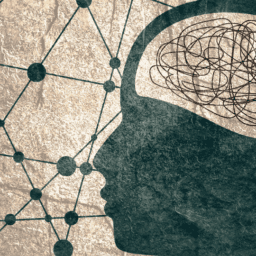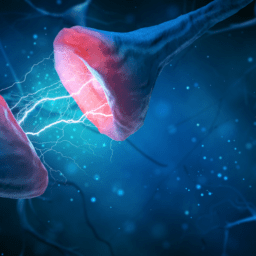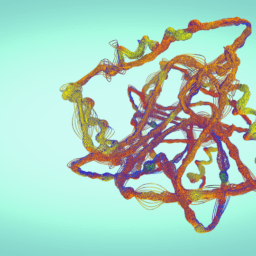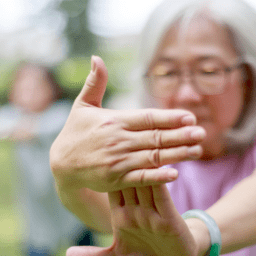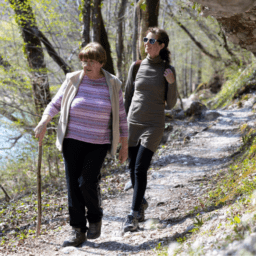Acupuncture for anxiety. Night owls, early birds, and daytime sleepiness. Peer-to-peer care partner support. Goat therapy. The latest on pesticides and Parkinson’s. Here’s what’s new in the world of Parkinson’s this month.
PARKINSON’S ARTICLES
- A study that compared “brain-first” Parkinson’s (when the damage caused by Parkinson’s is mostly limited to cells in the brain) to “body-first” Parkinson’s (when Parkinson’s damages not only brain cells but also nerves throughout the body) found that people with body-first Parkinson’s who show early signs of cardiac nerve dysfunction often experience faster progression than people whose Parkinson’s is brain-predominate. The research, conducted by scientists at the Catholic University of Korea, was published in Neurobiology of Disease.
- Findings from a study published in Nature Communications showed not only that toxic clumps of alpha-synuclein can vary in size but that it’s the smaller clumps that are “the critical species” driving neuroinflammation and the progression of Parkinson’s.
- A study that followed people with Parkinson’s in northern China for 10 years found that older age at the onset of Parkinson’s, a faster rate of progression, and severe cognitive impairment add up to poorer survival rates. Results, published in BMC Neurology, also suggested that physical activity and deep brain stimulation (DBS) may help extend life among people with Parkinson’s.
- In a post-mortem analysis of brain neurons, researchers at Rutgers University found more than 200 genes with different epigenetic marks in the brains of people with Parkinson’s compared to people without Parkinson’s. Just as interestingly, they also found that the affected genes were almost entirely different in men and women. The study was published in npj Parkinson’s Disease.
- Findings from a study that followed 61 people with Parkinson’s for up to three years suggest that poor sleep quality may increase the risk of developing Parkinson’s-related dyskinesia.
- In other sleep-and-Parkinson’s news, a study published in Parkinsonism and Related Disorders found that Parkinson’s-related daytime sleepiness was most closely related to the type of dopamine therapy being used and not to a person’s being a “night owl” or “early bird.”
- Neurologists and engineers at RMIT University in Australia have developed a smartphone app that can detect Parkinson’s via voice recordings.
- In a Swedish registry-based study, people with Parkinson’s were found to be at approximately four times higher risk of developing dementia compared to age and sex-matched controls. The study was published in Scientific Reports.
- After four sets of farming fathers and sons in Cork developed Parkinson’s, researchers at the University College Cork have begun to investigate the potential links between pesticides and Parkinson’s.
- In another pesticides-and-Parkinson’s article, The Guardian reported that some employees at Syngenta, the Swiss company that has manufactured and marketed the herbicide paraquat, knew for decades that it might be a health hazard. “A cache of internal corporate documents dating back to the 1950s reviewed by the Guardian suggests that the public narrative put forward by Syngenta and the corporate entities that preceded it has at times contradicted the company’s own research and knowledge,” the journalists wrote. “Insiders feared they could face legal liability for long-term, chronic effects of paraquat as long ago as 1975.“
- Researchers at the University of South Australia have demonstrated for the first time links between methamphetamine use and Parkinson’s in humans. The team found that using methamphetamine a few as five times could have long-term effects on brain regions that control movement. Methamphetamine, which damages the same set of neurons that are damaged by Parkinson’s, has previously been used in animal models for Parkinson’s because of its known abilities to damage movement-related brain cells.
- A study by scientists in The Netherlands highlights the positive impact former Parkinson’s care partners could have by serving as peers and mentors for current care partners. The research was published in npj Parkinson’s Disease.
- In a rat model of Parkinson’s, stem cells derived from human umbilical cords to generate dopamine-producing neurons were modified with BDNF (a signaling molecule that promotes the survival and growth of neurons) and showed the potential to decrease motor impairments and increase dopamine activity through neuroprotection and anti-neuroinflammation.
- Feedback that scientists in Sweden received from interviews with the Parkinson’s community showed that people with Parkinson’s have “generally positive attitudes” about therapies derived from human embryonic stem cells, or hESCs. The interview study was published in BMC Medical Ethics.
- A PhD student at King Abdullah University of Science and Technology recently found that zinc ions can help human serum albumin (a transport protein) better prevent the build-up of alpha-synuclein. The findings, which were presented on an award-winning poster at the International Symposium on Frontiers in Molecular Science, may lead to new preventive therapies for Parkinson’s.
- Findings from a study published in Neurology showed an association between gaining or losing weight within a year of being diagnosed with Parkinson’s and increased cognitive decline.
- An article in Nature highlighted 76 cerebrospinal fluid (CSF) proteins that were found to be structurally altered in people with Parkinson’s relative to people without Parkinson’s, thus identifying a potential new Parkinson’s biomarker. The findings also have the potential to help scientists differentiate different Parkinson’s subtypes and increase the scope of Parkinson’s treatments.
- In a JAMA Neurology Viewpoint article, three physicians who treated Muhammad Ali for more than 20 years highlighted evidence that supports a primary diagnosis of young onset idiopathic Parkinson’s. Michael Okun, MD, one of the three, said it was the “first time that a group of physicians who continuously evaluated him over the years has spoken on the record…I think it’s important for people to understand what the actual facts of the medical condition were from the doctors who examined him.”
- The Michael J. Fox Foundation for Parkinson’s Research (MJFF) and its partner the Edmond J. Safra Foundation are expanding the number and reach of Parkinson’s clinician-researchers around the world. Since the program launched in 2014, 27 new movement disorder specialists have graduated as participants, and by 2028, that number is projected to be 72.
- A mouse model study published in Cell Death Discovery supports earlier findings that link inflammatory conditions in the gut to the development and progression of Parkinson’s.
PARKINSON’S treatments and THERAPIES
- Results from a randomized clinical trial by researchers at Guangzhou University of Chinese Medicine found that people with Parkinson’s who participated in acupuncture three times a week for eight weeks had significantly lower levels of anxiety than people who underwent “sham acupuncture.” The results support the belief that acupuncture can be an effective complementary therapy for Parkinson’s. The study was published in the journal JAMA Network Open.
- A study sponsored by Gb Sciences, Inc. and published in Frontiers in Pharmacology identified promising ratio-controlled mixtures of cannabis-inspired compounds for the treatment of Parkinson’s.
- Dosing has begun in Denali’s and Biogen’s global Phase 3 LIGHTHOUSE study, which is evaluating the efficacy and safety profile of BIIB122 in approximately 400 people with Parkinson’s who have a confirmed pathogenic mutation in the leucine-rich repeat kinase 2 (LRRK2) gene. The trial is the largest study ever conducted in people whose Parkinson’s is caused by a LRKK2 mutation.
- Using an integrated functional genomics approach, researchers at the Jan and Dan Duncan Neurological Research Institute at Texas Children’s Hospital and Baylor College of Medicine discovered 50 genes that may have the ability to modify Parkinson’s pathology. The research was published in Human Molecular Genetics.
- A small study published in Acta Neurologica Belgica found that four weeks of a virtual Lee Silverman Voice Therapy (LSVT)-BIG program was as effective as in-person voice therapy for improving quality of life and several motor and non-motor Parkinson’s symptoms.
- Enterin Inc., a US-based biopharmaceutical company, will collaborate with the Parkinson’s Virtual Biotech (the drug development and discovery arm of Parkinson’s UK) for a Phase 2 trial that will investigate the effects of ENT-01 on Parkinson’s-related dementia. Findings from an earlier trial of ENT-01 suggest that it has the potential to modify Parkinson’s progression and also help manage gastrointestinal dysfunction, dementia, psychosis, sleep, and circadian rhythm. ENT-101 is a drug designed to keep alpha-synuclein from accumulating and aggregating within the enteric nervous system.
- Lucy Therapeutics recently shared promising preclinical data for two of their lead small molecule agents, LucyTx-1209 and LucyTx-1212. Data indicated that the compounds can “rescue” neurons in cellular models of Parkinson’s. The biotech company will now focus on selecting the best candidate to advance for clinical trials.
- NeuroOne Medical Technologies Corporation has received U.S. Food and Drug Administration (FDA) clearance to market its Evo sEEG Electrode technology for temporary (less than 30 days) use. The device can record, monitor, and stimulate electrical signals at the subsurface level of the brain.
- With the help of a $4.9 million grant, Muna Therapeutics will work to develop drug that can block the molecule potassium channel type 1.3 (Kv1.3) in order to slow or prevent neurodegeneration and Parkinson’s progression.
- BioVie has fully enrolled participants in its NM201 study (NCT05083260), a double-blind, placebo-controlled, safety, tolerability, and pharmacokinetics study in people with Parkinson’s who receive treatment with both carbidopa/levodopa and BioVie’s drug candidate NE3107. NE3107 is an oral small molecule that can permeate the blood-brain barrier and has shown potential anti-inflammatory, insulin-sensitizing, and ERK-binding properties.
- A study that compared drug absorption between XPhyto Therapeutics’s rotigotine transdermal (“TDS”) patch and the name-brand product (the Neupro patch) in three separate samples over a 24-hour period showed that rotigotine from the XPhyto patch can be absorbed through the skin in ways similar to the Neupro patch. XPhyto CEO Hugh Rogers said the results “exceeded our expectations” and proved that the product is ready for further human clinical evaluation.
- Findings from a mouse model study published in Neurobiology of Disease suggest that a combination of exercise, cognitive stimulation, and social activity can help minimize Parkinson’s symptoms and protect neurons, though these benefits were more pronounced in the early stages of Parkinson’s compared to more advanced stages.
- Two studies by researchers at Washington University School of Medicine in St. Louis explore how a molecule called SARM1 serves as a “central executioner” by triggering the death of axons (the portions of neurons that carry nerve impulses away from the cell body). Because this axon death has been shown to underlie the development of neurodegenerative conditions, the research may lead to the development to new treatments for Parkinson’s and similar conditions caused by axon loss.
PARKINSON’S LIVING WELL STORIES
- A senior at Southern Methodist University has developed a prototype of a self-stabilizing SteadiSpoon, an affordable device designed to help people with Parkinson’s who experience hand tremors to eat more easily. “So many solutions are cost prohibitive,” he said. “I wanted to make sure that not only was this scalable to be able to impact everybody but for it to be affordable for everybody across the world no matter their location or financial situation.”
- A story in Best Life highlights the many ways actor Alan Alda adapts to living with Parkinson’s. “I keep getting more confident that I can always find a workaround,” he said. “I’m more convinced than ever that life is adapting, adjusting, and revising.”
- Boxing and goat therapy help Koren Snow manage her Parkinson’s symptoms and live well.
- Nic Chesnut, who was diagnosed with Parkinson’s in 2013, says exercise and optimism help him live well every day. “I told myself Parkinson’s was not going to hold me back,” he says.
PARKINSON’S SURVEYS, CLINICAL TRIALS, and volunteer opportunities
- Colorado Oral Strengthening Device – The University of Colorado is looking for adults with Parkinson’s to participate in a research study exploring how a novel low technology device can achieve an increase in tongue strength comparable to standard of care exercise using tongue depressors but with the kinematics and simple biofeedback of existing high cost devices. Research has shown that tongue resistance exercises paired with biofeedback have resulted in improved tongue strength to support chewing, control of food and liquid in the mouth, and propulsion of material for a swallow. Learn more and enroll here.
- Do you have early-stage Parkinson’s? The Orchestra Study is a clinical research study to evaluate the use of an investigational medication called UCB0599 in men and women with early-stage Parkinson’s. You can learn more and see if you qualify here.
- PD GENEration – The Parkinson’s Foundation has announced a major expansion of its national study to make genetic testing and counseling more available for people with Parkinson’s. The study (NCT04057794) hopes to enroll 15,000 people in all 50 US states, Puerto Rico, and the Dominican Republic. Details are available here. For questions about enrollment, email genetics@parkinson.org.
- Parkinson’s Progression Markers Initiative – In an expanded study, the Parkinson’s Progression Markers Initiative (PPMI) is currently working to enroll up to 100,000 people with and without Parkinson’s. The study team is especially seeking to enroll people diagnosed with Parkinson’s in the past two years and who are not yet on treatment, as well as people 60 and older who aren’t living with Parkinson’s but have a risk factor for it (such as a close relative with Parkinson’s, a known Parkinson’s-associated mutation, and/or REM sleep behavior disorder). The observational study is also enrolling people with no known connection to Parkinson’s to serve as a control group. Learn more here.
- TOPAZ (Trial of Parkinson’s and Zoledronic Acid) – Caroline Tanner, MD, PhD, is recruiting participants for a new remote clinical trial led by a team of Parkinson’s experts at UCSF in partnership with researchers from across the country. The study aims to help people with Parkinson’s or parkinsonism maintain their independence by reducing the risk of hip fractures. The study will test if zoledronate, an FDA-approved medication for osteoporosis, can prevent fractures in people with Parkinson’s, whether or not they have osteoporosis. To learn more, visit the study website at TOPAZstudy.org, email TOPAZ@ucsf.edu, or call (415) 317-5748.
- Join Google and LSVT in Project Euphonia – LSVT Global has partnered with Google on an exciting research project called Project Euphonia to help improve automatic speech recognition software for people with speech disorders. These disorders may make using devices like Google Home, The Nest, and other Smart devices, Siri, Alexa, or speech-to-text frustrating. To do this, LSVT Global needs samples of disordered speech to train the system. You are encouraged to enroll if you’ve been diagnosed with Parkinson’s, PSP, MSA, or CBD with mild, moderate, or severe speech disorders. Participation is easy, can be done from your own home, and can earn you a $60 gift card! Learn more here.
- G2019S LRRK2 Parkinson’s: Increasing Awareness and Genetic Testing Program – This program aims to support the development of precision medicine intended to treat people with genetic forms of Parkinson’s. Up to 15% of cases of Parkinson’s disease have an underlying genetic cause, yet many people have never had genetic testing. This research program will be very important in supporting the future development of a new oral precision medicine treatment for one of the most common genetic forms of Parkinson’s, aimed at slowing its progression. To learn more, visit geneticpd.com.
- A PD Avengers research group is undertaking a new project called Sparks of Experience, designed to be more systematic about collecting and considering the experiences and ideas that come from the curious minds of people living with Parkinson’s. “In the past, these sometimes quirky ideas inspired by lived experience have turned into significant new directions for research. It could be said we are trying to capture serendipity,” the team says. To learn more and get involved, see the flyer here.
- Game-based Exercise Project – Researchers at the University of Auckland are investigating how games can be used as potential rehabilitation systems. This project aims to develop suitable game-based exercise experiences to help people living with Parkinson’s. If you are 45 or older, and living with a chronic condition such as Parkinson’s, and/or are experiencing age-related health conditions, you are invited to participate in a survey that will help the researchers to understand the community’s interests in games and gameplay in the context of exercise and rehabilitation. To learn more and take the 15-minute survey, see the flyer here.
- SPARX3 – A Phase 3 Clinical Trial about Exercise and Parkinson’s – This research team is currently seeking volunteers to participate in a clinical trial about the effects of aerobic exercise on people with Parkinson’s. Learn more and see if you qualify here. For more details, contact Katherine Balfany at SPARX3@ucdenver.edu.
- PAIRing Up – If you are a person with Parkinson’s or a care partner to someone with Parkinson’s, you are invited to participate in an online survey to address neuropsychiatric (cognition, depression, anxiety) concerns in Parkinson’s. The survey aims to learn about the needs and priorities for clinical care, education, support, and research related to neuropsychiatric symptoms. To learn more and participate, click here to download the flyer.
- A multidisciplinary research team in the UK is investigating how to best use music to help people with Parkinson’s manage symptoms related to movement and mood. This includes research about music for dancing and is the first study to incorporate the new Dance Sophistication Index for people with Parkinson’s. To learn more and take a 30-minute survey, click here.
- The University of Oulu and collaborators from Aalborg University, Fraunhofer University, the University of Manchester, the University of Glasgow, the University of Lisbon, and the University of Melbourne, are conducting a survey for people with Parkinson’s and Parkinson’s care partners about self-care. Complete the survey here to share your self-care strategies and techniques. You can also review ideas submitted by others and add them to your own self-care toolbox.
- Home-based Exercise and Cognitive Behavior Therapy – University of Alabama in Huntsville
- Speech and Telemedicine Study – The Purdue Motor Speech Lab
- Parkinson’s and Service Dogs – University of Groningen, Netherlands
- Neurology Study Interest Registry – University of Rochester
- Park Test – University of Rochester
For more of what’s new in Parkinson’s news, check out our full series here.
WANT MORE PRACTICAL ARTICLES LIKE THIS?
You can find much more in our Every Victory Counts® manual. It’s packed with up-to-date information about everything Parkinson’s. Request your free copy of the Every Victory Counts manual by clicking the button below.
Thank you to our 2022 Peak Partners, Amneal, Kyowa Kirin, and Sunovion, as well as our Every Victory Counts Gold Sponsor AbbVie Grants, Silver Sponsor Lundbeck, and Bronze Sponsors Supernus and Theravance for helping us provide the Every Victory Counts manual to our community for free.








